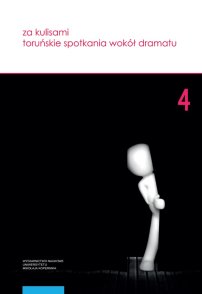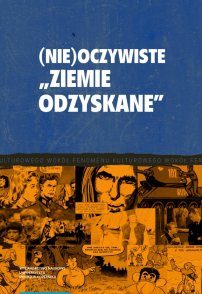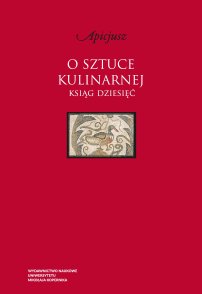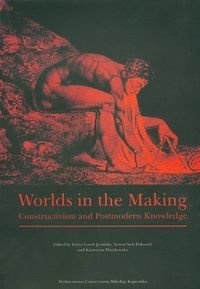PhD, is Assistant Professor of Literature and Cultural Studies at Nicolaus Copernicus University in Toruń, Poland. She is the author of The Hybrid in the Limen: British and Polish Environment-Oriented Theatre (2003, Toruń) and co-editor of Corporeal Inscriptions: Representations of the Body in Cultural and Literary Texts and Practices (2005, Toruń), Worlds in the Making: Constructivism and Postmodern Knowledge (2006, Toruń), Litteraria Copernicana: Cyborg (2011, Toruń) and Ex-changes: Comparative Studies in British and American Cultures (2012, Newcastle).
Worlds in the making: constructivism and postmodern knowledge
Contents
Preface; Constructivism in Language Sciences and Education: Zdzisław Wąsik:Investigative Perspectives in the Construction of Scientific Reality:An Epistemological Outlook on the Foundations of Linguistic Semiotics; Przemysław Żywiczyński: Constructivism in Indian Philosophy of Language; Tomasz Fojt: The Role of Figurative Language in the Construction of Knowledge; Waldemar Skrzypczak: Alternate Construals, Duals and Selective Projections in Meaning Construction; Elżbieta Wąsik: Linguistic Properties of Communicating Individuals in the Construction of Intersubjective World of Meanings; Katarzyna Molek-Kozakowska: Constructivist Influences in the Practice of Contestation: A Study of the Beat Generation Anti-Language; Agnieszka Nowicka: Construing the Foreigner Identity in the Intercultural Interviews; Monika Linke: Constructing Meaning in the Process of Translation; Krystyna Adamska: Wiedza jako złożony proces interakcjii - konsekwencje dla nauczania i etyki; Teresa Siek-Piskozub: Constructivism in Language Pedagogy; Augustyn Surdyk: Constructivist Character of the Technique of Role-Playing Games and its Autonomizing Values in the Glottodidactic Process; Dorota Guttfeld: Henry James, Literary Master of Games: The Turn of the Screw and Role-Playing; Maria Jodłowiec: Raising Meta-Awareness in Language Teacher Education; Krzysztof Strzemeski: Learning Strategies Training for Prospective EFL Teachers: A Research Proposal; Ewa Kościałkowska-Okońska: Constructivist Approach to Translation Teaching; Ewa Solska: Pamięć uniwersytetu i projekt Europejskiej Przestrzeni Edukacyjnej. Constructivism in Cultural, Historical and Literary Studies: Mirosława Ziaja-Buchholtz: Constructivism and Literature; Maria Wiszniowska-Majchrzyk: "Producing not the known but the unknown" (Lyotard). On (Post) Modern (Grand) Narratives; Anna Branach-Kallas: The Changing Status of Canadian History: Postmodern Deconstructions, Postcolonial Reconstructions; Magdalena Sawa: The Unreliability of the Verbal and the Visual in Julian Bames's A History of the World in 10 1/2 Chapters; Anna Olkiewicz: Local Discourses in Historiographical Metanovels by Beryl Bainbridge; Edyta Lorek-Jezińska: Re-Constructing Myths and Master Narratives in British Feminist Drama: Timberlake Wertenbaker's The Love of the Nightingale; Katarzyna Więckowska: Playing with the Real: Paul Auster's Deconstructive Fictions; Stefan L. Brandt: "Surface, Surface, Surface.": Image Creation, Commodity Fetishism, and the Fragmentation of the Postmodern Subject; Anna Krawczyk-Łaskarzewska: Knowledge in the Land ofApophenia; Dariusz Pestka: The Po-Mo Land of Pornographic Confusion: From Obscenity to Iconoclastic Smugness to Neurosis; Jaroslav Kusnir: Postmodern Identity and Literary Construction of Realities in Richard Powers's Novel Galatea 2.2 (1995); Agnieszka Sowińska: Caught in the Web of Simulacra: On the Deconstruction of the Sign and the Construction of Hyperreality; Tomasz Kowalewski: Constructivism and National Identity: Some Aspects of Narrating Scottishness in Selected Scottish Prose; Rüdiger Kunow: The Enigma of Arrival; John J. Murphy: Willa Gather's Sacred Places; Marek Jeziński: Budować, tworzyć, być. Postmodernistyczny pozytywizm Chrisa Cutlera; Marek Woźniak: Historiografia czyli konstruowanie światów (przeszłości) możliwych?; Piotr Witek:Oswajanie przeszłosci w epoce ekranów. Audiowizualne gry kulturowe jakonowe formy konstruowania historycznych światów możliwych; Krzysztof Witek: Telewizja jako spektakl. Teatr telewizji jako strategia konstruowania ,,teleświatów"; Beata Gontarz: Powieść jako model poznania (przykład Karoliny Krzysztofa Vargi i Trybów Magdaleny Tulli); Anna Klepaczko: Metafora transsemiotyczna w przekazie reklamowym i powieści hipertekstowej
Edyta Lorek-Jezińska
- Corporeal inscriptions. Representations of the body in cultural and literary texts and practices
- Litteraria Copernicana 2(8)/2011: Cyborg. Technologia w literaturoznawstwie i studiach kulturowych
- Worlds in the making: constructivism and postmodern knowledge
- The hybrid in the limen: British and Polish environment-oriented theatre in theory and practice
Teresa Siek-Piskozub
- Worlds in the making: constructivism and postmodern knowledge
Katarzyna Więckowska
PhD, teaches cultural and literary studies at Nicolaus Copernicus University in Toruń, Poland. She is the author of On Alterity: A Study of Monstrosity and Otherness (2008, Toruń), editor of The Gothic: Studies in History, Identity and Space (2012, Oxford), and co-editor of a number of volumes, including Corporeal Inscriptions: Representations of the Body in Cultural and Literary Texts and Practices (2005, Toruń), Litteraria Copernicana: Cyborg (2011, Toruń), and Ex-changes: Comparative Studies in British and American cultures (2012, Newcastle).
- Litteraria Copernicana 2(8)/2011: Cyborg. Technologia w literaturoznawstwie i studiach kulturowych
- Spectres of men. Masculinity, Crisis and British Literature
- Worlds in the making: constructivism and postmodern knowledge
- Corporeal inscriptions. Representations of the body in cultural and literary texts and practices
- The nation of the other: constructions of nation in contemporary cultural and literary discourses
- On Alterity. A study of monstrosity and difference
Inne z tej kategorii

Za kulisami. Toruńskie spotkania wokół dramatu. Edycja czwarta

(Nie)oczywiste „Ziemie Odzyskane”

Pan Samochodzik i…







